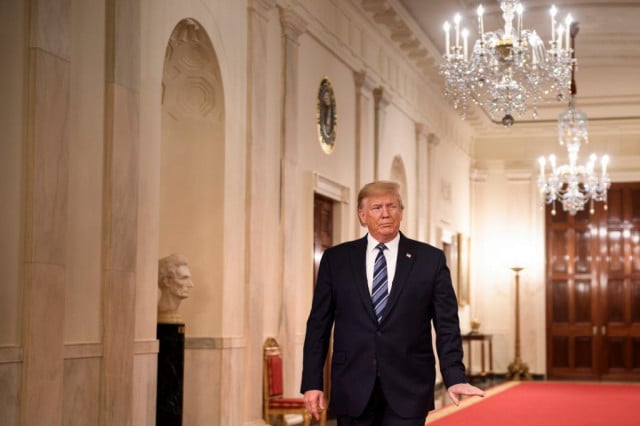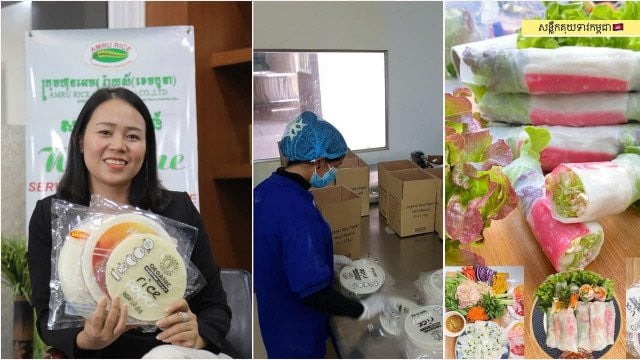NBC Committed to Stabilizing Riel Exchange in Responding to Increased Inflation

- By Ou Sokmean
- and Meng Seavmey
- January 30, 2024 7:10 PM
PHNOM PENH – Inflation has been projected to reach 2.5 percent in 2024, higher by 0.4 percentage points compared to 2023. The increase was due to the rising oil prices, the National Bank of Cambodia (NBC) said. The economy, however, may face some challenges because of the prolonged geopolitical conflicts and slow economic growth in major countries.
According to the report ‘Macroeconomy and Banking Sector Development in 2023 and Outlook for 2024’ released on Jan. 29 by the NBC, Cambodia’s growth domestic product (GDP) is expected to increase by 6.4 percent this year because of the rapid recovery in tourism, manufacturing, and agricultural sectors. It will benefit from export diversification to members of the Regional Comprehensive Economic Partnership (RCEP), which grants tax benefits to its 15 member countries, which include China, Japan, South Korea, the ASEAN, Australia and New Zealand.
Despite the uncertainties, NBC will continue to implement the monetary policy and maintain the riel exchange rate to stabilize the price and purchasing power parity of the national currency.
Ky Sereyvath, a researcher in economics at the Royal Academy of Cambodia, said the national economy shall not be harmed by the anticipated inflation rate because the growth will compensate for it.
“The rate is not alarming yet. A concerning number is around 4-to-5 percent or higher. For now, the livelihood of Cambodian people will not be affected by the rate,” he told Cambodianess on Jan. 30.
Hong Vannak, another economic researcher at the Royal Academy of Cambodia, said the growing inflation might be caused by the imbalance of exports and imports.
“There is more than one factor to explain inflation. The country’s imports show a lower figure than those of exports, which leads to an imbalance of buying and selling in trade volume,” he said.
“The inflation might affect some people who have fixed incomes which provide them the same amount monthly. Their livelihood will change as they will spend more on their needs and some might not be able to save up anymore,” Vannak added.
“The economic flow requires social economic activities from individuals’ expenses. When they spend more, the flow becomes greater,” he said, adding that the increase in retailing businesses will attract foreign investments.
For now, the economist calls on the public to be cautious about their spending and consider planting some vegetables and fruits at home to reduce their daily expenses.
“They can spend on what is necessary and plant what they can,” he said, adding that the measure might be effective in reducing expenses while inflation increases.
Factors increasing inflation and impacts
While construction and real estate sectors experience a slow recovery following a COVID-19-related slowdown, the prolonged geopolitical conflicts and slow economic growths in the world’s major economies, which are Cambodia’s main export markets, might cause some risk factors to Cambodia, the NBC said.
An economic slowdown in important trade partners like the U.S., China or the European Union tends to have consequences on several Cambodian sectors, affecting foreign investments, exports, and the flow of international tourists.
Prolonged inflation or economic crisis in these regions might also create a new normal for currency policy, affecting the capacity of banks to grant loans to companies who might want to develop overseas, according to the bank.
While geopolitical tensions in Ukraine, the Middle East and the Taiwan Strait may affect the global supply chain, local issues such as non-performing loans, may also reduce the capacity of the financial sector to support new investments.
Cambodia, moreover, is still dealing with some major structural problems such as a slow diversification economy and exports, limited technical skills and productivity, non-competitive cost of transportation and electricity compared to its neighbors, and high dollarization, according to the report.
NBC’s usual response to unstable riel prices in exchange markets
In response to the growing inflation, the NBC will maintain the exchange rate stability and the price and purchasing power parity of riel currency through the sustainable implementation of currency policy, according to the report.
“The monetary policy framework will be strengthened, particularly on developing tools and currency markets at the same time, and the pilot establishment of the National Bank’s base interest rate to orient the interest rate in riel in the market to a reasonable level,” NBC said.
“Financial stability maintenance is one of the priorities when the global economy is facing uncertainties and slow growth. This requires high caution in tracking and evaluating regularly on possible risks; enhancing financial literacy and client protection; strengthening financial stability and monetary policy efficiency; and, promoting riel currency usage as well as calling on participation and cooperation from relevant actors and the public,” NBC added.
The national bank is used to issuing new quantities of dollars to stabilize the riel value on exchange rate markets.
In 2023, the NBC issued nearly $140 million to stabilize the riel price on the market. Those dollars were issued in series through biding with banking and microfinance institutions and currency exchange business owners in the country.
In 2021, the national bank already issued $554.2 million to purchase riel currency from the exchange market to maintain the value of the national currency. No intervention of the NBC was recorded in 2022 as the value of the riel against U.S. dollars remained stable.















